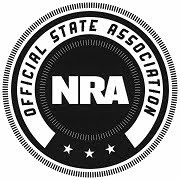This critique, foreshadowed by gun rights proponents over the past few weeks as Garland’s name surfaced as a possible candidate to replace Antonin Scalia, is largely premised on a procedural vote Garland made in a 2007 case that centered on whether Washington, D.C.’s handgun ban was unconstitutional.With all due respect to Professor Blocher, I'll take VSSA Life Member Steve Halbrook and Dave Kopel's insight on the issue. Halbrook appeared on NRANews yesterday to discuss the nomination.
But those who denounce Garland in the name of gun rights might be misreading that 2007 vote, which was in favor of allowing more judges on his court to review a decision made by a three-judge panel, says Joseph Blocher, a constitutional law professor at Duke University.
Rather than definitive evidence that Garland would like to curtail gun rights, the vote may simply be an indication that he is a jurist who is especially deferential to rulings made by previous courts, Blocher says.
“It is impossible to tell” what Garland meant by voting for rehearing, Blocher tells The Trace. “It may well be that he just wanted the whole court to weigh in on such a major decision. That would not be particularly unusual.”
Merrick Garland is a judge on the U.S. Court of Appeals for the D.C. Circuit. He could be counted on not only to oppose Second Amendment rights in general, but even to nullify explicit congressional statutes that protect those rights.It is expected that Virginia's Senators Warner and Kaine will stay in lock step with Obama on this nominee but it won't hurt for gun owners to register their opposition and point out the above as reasons that anyone who claims to support the 2nd Amendment, as both Warner and Kaine do, should oppose Garland for the Supreme Court.
In 2007, a three-judge panel of the D.C. Circuit ruled against the D.C. handgun ban in the case of Parker v. District of Columbia (which was the name of the case that eventually became District of Columbia v. Heller when it went before the Supreme Court). The D.C. government asked for a rehearing of the case, before all 10 judges of the D.C. Circuit.
Six judges voted not to rehear the case, while four judges voted for a rehearing, presumably because they disagreed with the three-judge panel that had ruled against the handgun ban. Garland was one of the four judges who wanted a chance to validate the handgun ban.
In 2000, Garland was on a three-judge panel that heard the case of NRA v. Reno. In that case, the Janet Reno Department of Justice had flouted the congressional statutes that prohibit the federal government from compiling a registration list of gun owners, and which required the destruction of national instant check (NICS) records of lawful, approved gun purchases.
Judge Garland voted to let Reno get away with it. He said that registering all the people who were approved by NICS was permissible because Reno was not registering every gun owner in the country. And he said it was fine for Reno to keep gun buyer records for six months because although Congress had said the records must be destroyed, it did not say “immediately.”
Hat tip to Shall Not Be Questioned.








No comments:
Post a Comment